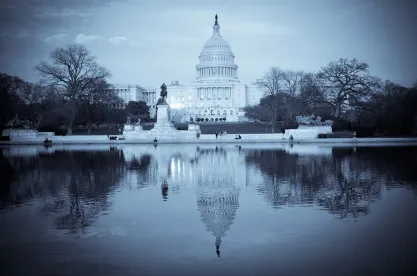Three Judges of the Sixth Circuit Court of Appeals have joined Judges in North Dakota and Texas in concluding that EPA's most recent attempt to establish the jurisdictional reach of the Clean Water Act is unlikely to survive judicial review. Now Kentucky joins the 26 other States in which EPA's attempt at a "durable" rule is on hold pending further judicial proceedings.
The most important of those further judicial proceedings is in our nation's highest court. Any day now the Supreme Court will issue its opinion, or opinions, in Sackett v. EPA. In doing so the Supreme Court could drive a stake through the heart of then-Justice Kennedy's "significant nexus" test for establishing Clean Water Act jurisdiction.
That "significant nexus" test is one of the two foundational elements of EPA's so far anything but durable Waters of the United States regulation.
The "significant nexus" test didn't command the support of a majority of the Supreme Court Justices when Justice Kennedy presented it in 2006. Three of the Justices who rejected that test then (including the Chief Justice) are all still in their seats, joined by Conservative Justices Gorsuch, Kavanaugh and Coney Barrett.
Given all this, it shouldn't be surprising that the Texas, North Dakota, and now Sixth Circuit Federal Judges aren't jumping on the "significant nexus" bandwagon.
To those of you who would accuse the opponents of the most recent Waters of the United States regulation of forum shopping, I would say two things. First, the results prove that forum shopping works. Second, do you really think it was a complete coincidence that challenges to the Trump Administration EPA's Waters of the United States regulation were filed in California and Massachusetts with similar success?
In staying EPA's most recent beleaguered attempt to resolve the longest running controversy in environmental law, the three Sixth Circuit Judges join EPA Administrator Regan in the stunning understatement that the Supreme Court's imminent Waters of the United States decision "may have significant effects" on the rule. What happens next is anyone's guess.





 />i
/>i

